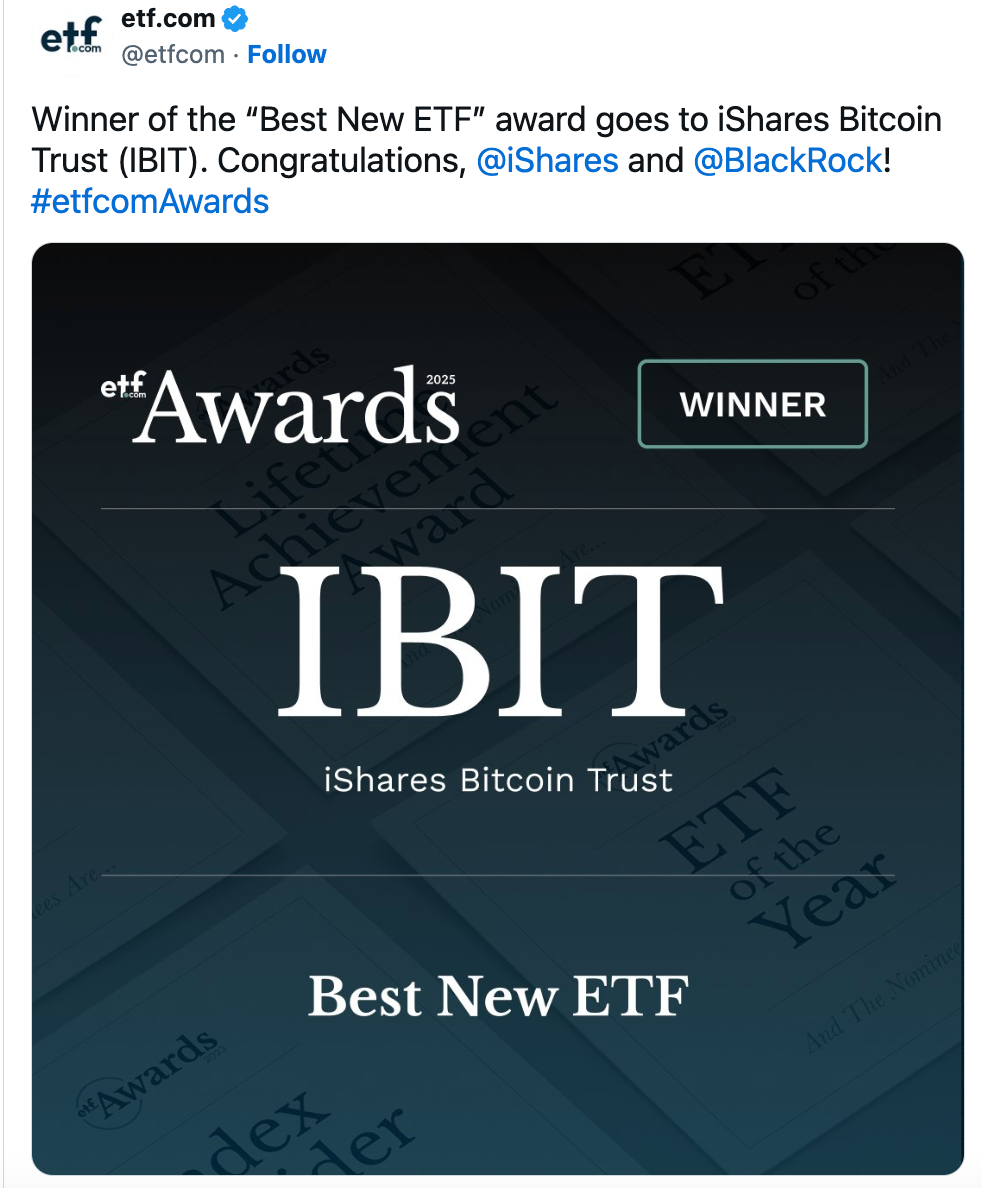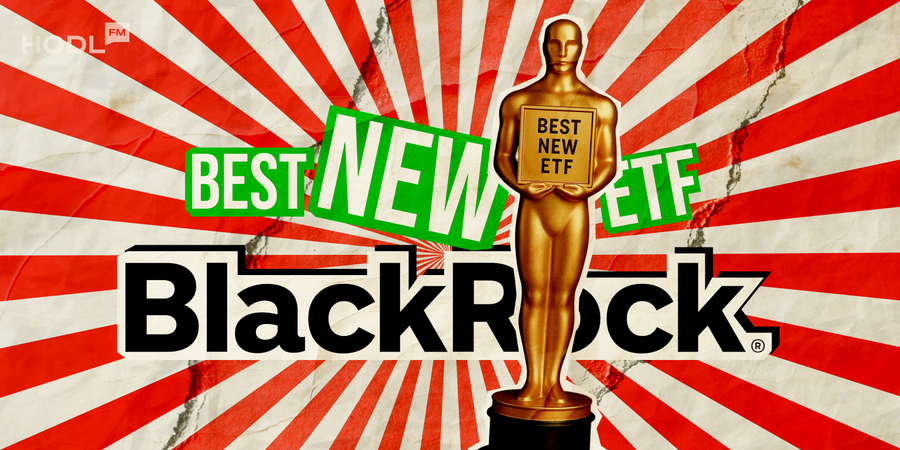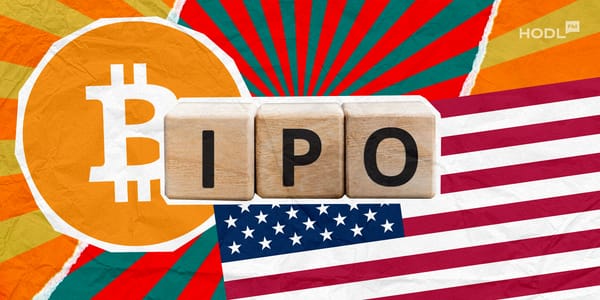Just months after its debut, BlackRock’s iShares Bitcoin Trust (IBIT) is already making headlines, intriguing the Crypto community for all the right reasons. At the prestigious 2024 ETF.com Awards, IBIT was named Best New U.S. ETF, beating out a competitive field that included hundreds of traditional asset funds. It was a win not just for BlackRock, but for crypto itself.

Launched in January 2024, IBIT’s trajectory has been nothing short of explosive. Ever since its launch in January of 2024, at that point, reaching up to $15 billion in assets, a staggering pace for any ETF, let alone one focused solely on Bitcoin. That tendency crescendoed on March 12, when IBIT recorded $849 million in net inflows in a single day, reminding you that it is the largest such figure among all U.S. Bitcoin ETFs. The spike aligned with Bitcoin’s surge to a new all-time high above $73,000.
That correlation was more than a coincidence, clearly indicating a signal of how institutional capital is now influencing and amplifying crypto market movements. One is dependent on the other.
Part of what makes IBIT stand out isn’t just size or timing, its precision. According to analysts at Bloomberg, Morningstar, and VettaFi, who served as judges for the ETF.com awards, the fund's tight spreads, deep liquidity, and operational stability bring a new standard to crypto-linked financial products. In short, BlackRock didn’t just launch a Bitcoin ETF, it brought a Wall Street sense and style to the digital assets, combining the two together.
Feels right to me. I’m pretty sure this is how I voted. Both of them did things no one has seen bf. https://t.co/UMnivxtDEV
— Eric Balchunas (@EricBalchunas) April 24, 2025
And that’s what makes this moment so noticeable. With IBIT, BlackRock has brought Bitcoin into the portfolios of investors who would never touch an exchange or custody wallet.
What might be even more important, other major players entered this too afterwards. Fidelity, Franklin Templeton, and Ark Invest have all rolled out their own spot Bitcoin ETFs. While several have gained meaningful traction, none have matched IBIT’s scale or velocity, first is first. That gap is likely driven not just by performance, but by perception. BlackRock’s name carries weight, especially when it comes to trust and execution, especially since IBIT may be just the beginning.
Fund CEO Larry Fink has made no secret of his interest in taking things further, describing tokenization as “the future of markets”. That vision includes not only crypto exposure but the full-scale digital representation of traditional assets, from bonds to real estate on blockchain rails. If that future plays out, IBIT could be remembered not simply as a breakout ETF, but as the first step toward the next financial infrastructure.
Still, questions remain. Regulation continues, market volatility hasn't disappeared, and competition in the ETF space is heating up. Yet what’s no longer up for debate is this: digital assets are now a permanent fixture of the investment field.
What Comes Next?
The real test will be whether this early momentum translates into long-term integration. For now, Bitcoin ETFs remain a gateway product, but with Ethereum ETFs on the horizon, and tokenized assets gaining conceptual traction, the trend is expanding well beyond BTC . If regulators continue to greenlight more crypto-linked financial instruments, we may be witnessing the slow fusion of Wall Street and Web3. Not through hype or ideology, but through familiar products, and more typical market mechanics, multiplied with the speed and accessibility of blockchain.

Disclaimer: All materials on this site are for informational purposes only. None of the material should be interpreted as investment advice. Please note that despite the nature of much of the material created and hosted on this website, HODL FM is not a financial reference resource and the opinions of authors and other contributors are their own and should not be taken as financial advice. If you require advice of this sort, HODL FM strongly recommends contacting a qualified industry professional.




